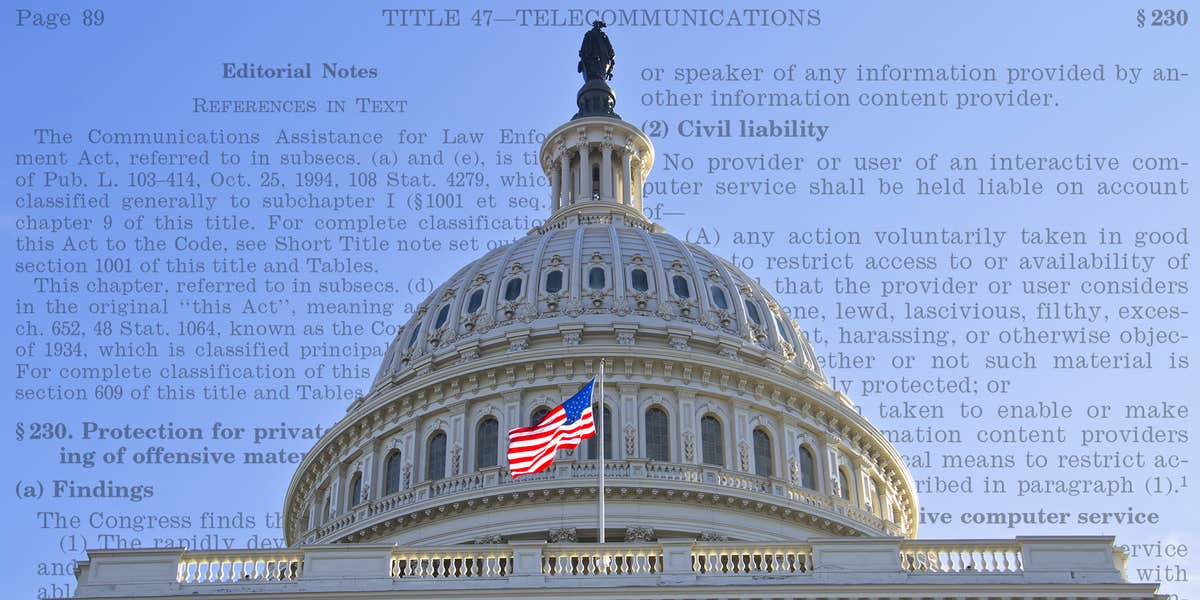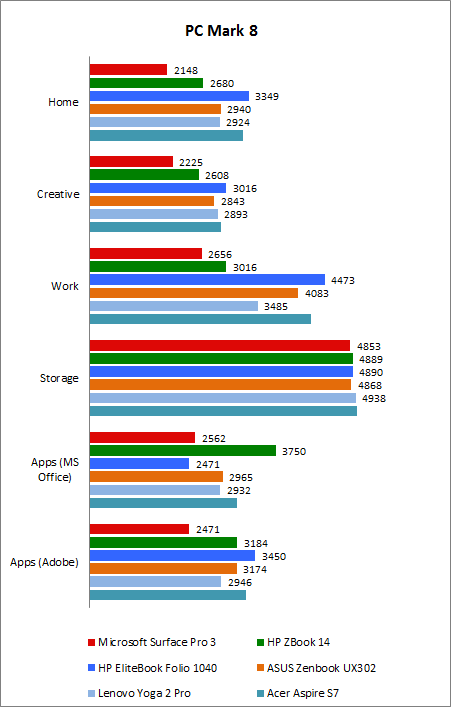EBay's Liability For Banned Chemicals: Section 230 In Question

Table of Contents
Understanding Section 230 and its Limitations
Section 230 of the Communications Decency Act of 1996 is a cornerstone of internet law in the United States. Its primary purpose is to protect online service providers from liability for content created by their users. This essentially means that platforms like eBay aren't held responsible for what their users post or sell, unless they are considered active participants in creating or distributing that content.
- Protects online platforms from liability for user-generated content: This is the core tenet of Section 230, shielding platforms from lawsuits stemming from user postings, including potentially illegal listings.
- Does not protect platforms from liability for their own actions or content: If eBay actively participates in creating or distributing illegal content, or if they are demonstrably negligent in their oversight, they can be held liable.
- The "good samaritan" clause encourages content moderation: This aspect of Section 230 encourages platforms to proactively moderate content. While it doesn't grant absolute immunity, it protects them from liability for removing or restricting access to user-generated content.
- Recent legal challenges have questioned the scope of Section 230: The interpretation and application of Section 230 are constantly being debated and challenged in court, particularly concerning issues of hate speech, misinformation, and the sale of dangerous goods.
Regarding eBay's responsibility for banned chemicals, Section 230 provides a complex legal landscape. While it offers some protection, the degree of protection depends heavily on the extent of eBay's involvement in facilitating the sale of these hazardous materials. The gray area lies in eBay's active moderation policies: If eBay is demonstrably aware of listed banned chemicals and fails to take sufficient action to remove them, their legal protection under Section 230 could be significantly weakened.
eBay's Policies and Enforcement Regarding Banned Substances
eBay maintains a comprehensive list of prohibited and restricted items, including a wide range of hazardous chemicals. These policies aim to prevent the sale of items that pose a risk to public safety. Examples of banned chemicals commonly found on eBay's prohibited items list include various pesticides, certain solvents, and specific precursors to explosive materials.
- Specific examples of banned chemicals: The list is extensive and regularly updated, reflecting changes in regulations and emerging threats. Specific chemicals are often identified by their chemical names, CAS numbers, or common names.
- Enforcement mechanisms: eBay employs a combination of automated systems, human review, and user reporting to enforce its policies. Automated systems scan listings for keywords and descriptions that may indicate prohibited items. Human reviewers examine flagged listings and user reports.
- Effectiveness of eBay's current system: While eBay's system catches many instances of prohibited items, the sheer volume of listings makes complete prevention challenging. The effectiveness of their system is an ongoing area of concern and scrutiny. Statistics regarding the number of listings removed for violating policies are usually not publicly released by eBay.
- Recent controversies: News reports occasionally surface detailing the successful sale of banned chemicals on eBay, highlighting loopholes in the system and the need for enhanced enforcement. These instances often become the focal point of debates regarding eBay's liability and the adequacy of Section 230 protection.
The Role of Sellers and Buyer Responsibility
The legal responsibilities for selling banned chemicals on eBay fall squarely on the shoulders of the individual sellers. These sellers are responsible for understanding and complying with both eBay's policies and all relevant federal, state, and local laws regarding the sale and transportation of hazardous materials.
- Potential legal ramifications for sellers: Violating eBay's policies can lead to account suspension or termination. More seriously, selling banned chemicals can result in significant fines, legal action from regulatory agencies, and even criminal charges.
- Buyer awareness and due diligence: Buyers also bear some responsibility. They should exercise caution and conduct due diligence to ensure the legality of purchased items. Purchasing hazardous materials without proper permits or licenses is itself a violation of the law.
- The role of consumer protection agencies: Agencies like the Environmental Protection Agency (EPA) and the Consumer Product Safety Commission (CPSC) play a crucial role in regulating the sale of hazardous materials, both online and offline. They can investigate instances of illegal sales and pursue legal action against both sellers and platforms that fail to comply with regulations.
Case Studies: Examples of Legal Precedents
Several court cases involving online marketplaces and the sale of hazardous materials offer valuable legal precedents. These cases often revolve around the interpretation of Section 230 and the extent of platform liability.
- Key decisions: Analyzing these cases reveals varying interpretations of Section 230's application in situations involving the sale of dangerous goods. Some courts have found platforms liable for facilitating illegal sales, while others have offered more protection under Section 230.
- Arguments presented: Plaintiffs often argue that platforms have a duty of care to prevent the sale of dangerous goods, while platforms emphasize their reliance on Section 230 and the impracticality of policing every listing.
These precedents are crucial in understanding the legal risks faced by eBay and other online marketplaces in relation to the sale of banned chemicals. They provide a framework for future litigation and influence how courts interpret the complexities of Section 230 in this specific context.
The Future of Section 230 and Online Marketplaces
The future of Section 230 is uncertain, with ongoing debates about its effectiveness and potential amendments. Changes to Section 230 could significantly impact platforms like eBay.
- Potential consequences of changes to Section 230: Weakening or repealing Section 230 could expose online marketplaces to a greater risk of liability for user-generated content, potentially leading to increased costs for legal defense and settlements.
- Increased pressure on online marketplaces: Regardless of Section 230's future, pressure on online marketplaces to proactively prevent the sale of illegal and hazardous goods will likely intensify. This pressure comes from regulators, consumer advocacy groups, and public opinion.
- The impact of evolving technology: Artificial intelligence (AI) and machine learning are playing an increasingly important role in detecting and removing prohibited items. These technologies have the potential to enhance the effectiveness of content moderation efforts on platforms like eBay.
Conclusion
eBay's liability for banned chemicals remains a complex issue with no easy answers. The applicability of Section 230 is heavily debated, contingent upon the platform's level of involvement in facilitating illegal sales. Sellers bear significant legal responsibility, and buyers should exercise due diligence. The evolving legal precedents, coupled with ongoing discussions about Section 230's future, create a dynamic and uncertain landscape.
Further research and discussion are crucial in understanding the evolving legal landscape surrounding eBay's liability for banned chemicals. Staying informed about changes in legislation and platform policies is essential for both buyers and sellers to mitigate risks. Increased awareness and proactive measures, including enhanced technological solutions and stricter enforcement by both eBay and regulatory agencies, are necessary to ensure a safer and more legal online marketplace.

Featured Posts
-
 Ortegas Afscheid Van Scream 7 Een Teken Van Steun Voor Barrera
May 07, 2025
Ortegas Afscheid Van Scream 7 Een Teken Van Steun Voor Barrera
May 07, 2025 -
 Game 4 Thriller Warriors Take 3 1 Lead Against Rockets
May 07, 2025
Game 4 Thriller Warriors Take 3 1 Lead Against Rockets
May 07, 2025 -
 0 4
May 07, 2025
0 4
May 07, 2025 -
 Papa Francesco Mappa Dei Cardinali E Il Futuro Del Cattolicesimo
May 07, 2025
Papa Francesco Mappa Dei Cardinali E Il Futuro Del Cattolicesimo
May 07, 2025 -
 Apple Watch Integration In Nhl Refereeing Benefits And Challenges
May 07, 2025
Apple Watch Integration In Nhl Refereeing Benefits And Challenges
May 07, 2025
Latest Posts
-
 12 Inch Surface Pro Performance And Portability
May 08, 2025
12 Inch Surface Pro Performance And Portability
May 08, 2025 -
 Surface Pro 12 Inch Price Specs And Review
May 08, 2025
Surface Pro 12 Inch Price Specs And Review
May 08, 2025 -
 Investigation Reveals Prolonged Presence Of Toxic Chemicals Post Ohio Derailment
May 08, 2025
Investigation Reveals Prolonged Presence Of Toxic Chemicals Post Ohio Derailment
May 08, 2025 -
 Massive Office365 Data Breach Leads To Millions In Losses
May 08, 2025
Massive Office365 Data Breach Leads To Millions In Losses
May 08, 2025 -
 Cybercriminals Office365 Infiltration Results In Multi Million Dollar Loss
May 08, 2025
Cybercriminals Office365 Infiltration Results In Multi Million Dollar Loss
May 08, 2025
